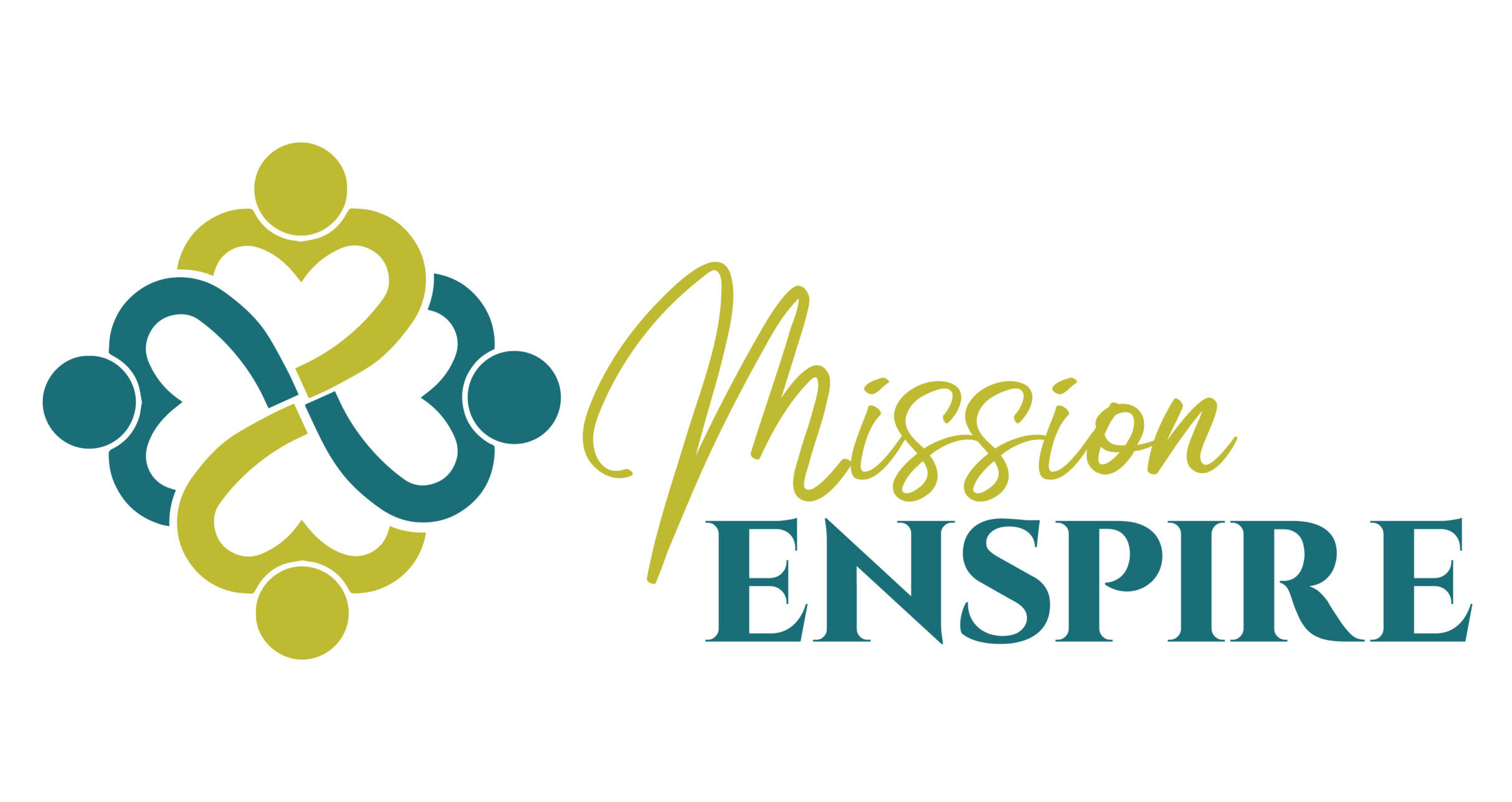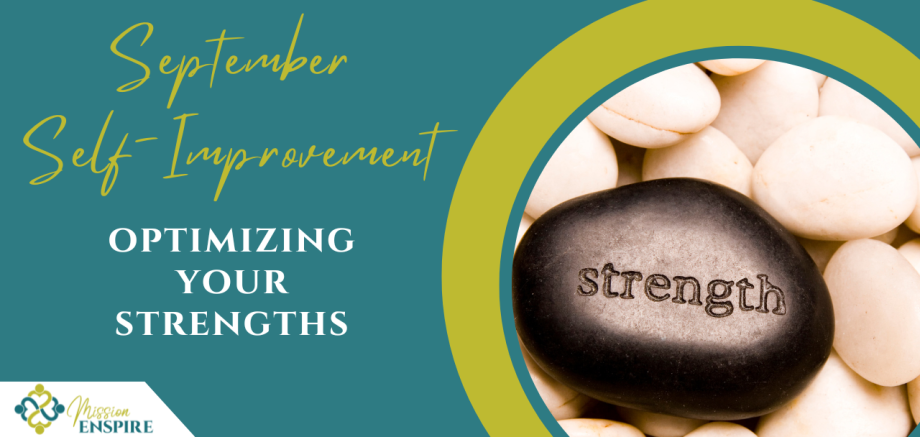Last week, we talked about the importance of creating habits to support your self-improvement goals and as Self-Improvement Month continues, I want to focus this week on another important dimension of self-improvement: optimizing your strengths. When we hear the term “self-improvement” we often tend to focus on the term “improvement” and interpret it to mean getting better in an area where we think we aren’t good already. But I like to take a broader view–I believe an important part of self-improvement is recognizing what we’re already good at, or where we’re already strong, and knowing how to “flex” those muscles by drawing on and maximizing those strengths.
But how do we do that, exactly? What does it mean, to have a “strength,” and how can we identify and make the most of them?
Strengths and Passions Aren’t the Same Thing
When it comes to strengths, they aren’t the same as passions. Strengths are attributes that each of us has that come easily and may set us apart or give us an advantage. Passion is a focus of energy into an activity that goes well beyond what is usually required. Strengths pertain more to abilities while passions are associated with interests.
- You Can Have Strengths that Aren’t Passions. You can have abilities and strengths that aren’t passions. You may be extremely organized but have no passion for organization. For some, being organized is simply utilitarian. You can also find the chemistry of cooking very easy but prefer to get take-out. Every tall person doesn’t want to play basketball, and so on.
- You Can Have Passions that Don’t Include Your Strengths. Sometimes our passions don’t include our strengths. We may be passionate about dance but have two left feet. We could be intrigued and love art but have no ability to draw. Passions don’t require perfection as much as they require interest. Sometimes our strengths develop when we pursue our passions out of the exposure that comes from engaging in a passion project. You may be able to learn to draw as you dive deeper into your love for art.
- Sometimes Passions and Strengths Collide. Sometimes we breathe the rare air where our passions, talents, and strengths combine. Under these circumstances our passions jive with our skill sets and we can wonderfully, effortlessly, and seamlessly create or engage in the things we are passionate about.
- Pursue Passions and Strengths Equally. Even though passions and strengths are not the same, they deserve to be pursued and celebrated equally. Considering what strengths you have and choosing to maximize them and play them to your advantage is smart, but it’s equally important to pursue your passions whether they encompass all of your strengths or not.
Your strengths and your passions add to your personal enjoyment in life and your self-esteem. Doing things that come easily or building a life and career around things you do well… and are passionate about, is ideal. This is a true form of working smarter, not harder. In the end, if you focus on doing things you love, whether you are great at them or not, you’ll increase your overall satisfaction in life, reducing depression, anxiety, and increasing your sense of personal satisfaction.
Tools To Identify Your Top Strengths
Everyone has strengths, though not everyone is aware of them. Knowing your top strengths can increase self-awareness and make it easier to make wise decisions in your best interest. Strengths are innate abilities that give us an advantage and generally require little effort. We have strengths in all areas of life, including:
- What we know – knowledge based strengths
- What we do – transferable skill sets
- Who we are – personal abilities
Knowledge based strengths give us an edge: the more you know about a specific subject, the more advantage you have. Specialized training, education, and hands-on experience all enhance knowledge. Transferable skills set us apart. What you can do easier and better than others gives you an advantage. Whether you have an innate talent for artistry or have mastered public speaking over time, your talents become an asset that sets you apart. Personal abilities come from within: you were born with personal character traits and a unique personality that operates like no one else. This couples with your personal life experience and shapes how you view and operate within the world. The combination of your mindset and unique perspective affords you with special skills and talents others don’t have.
Assessing your Strengths
If you aren’t certain what strengths you have in these areas, there are tools you can use to find out. Taking a moment to discover your strengths can help you develop them further and use them to your advantage as well as help you notice any deficits you may want to overcome. Here are some easy resources to use that will identify your strengths.
- Strengthsfinder Testing. There are a range of tests that break down strengths into categories and offer a range of your top skill sets. High 5 Tests is a free online test that uses a rating scale to assess skills and generate your top five skill sets.
- Meyers Briggs Test.This test is a time-honored test designed to help people identify how they see the world and make decisions. The test is a self-reporting questionnaire style test and results in assigning a combination of categories that represent introversion or extroversion, sensing or intuition, thinking or feeling, judging or perceiving.
Knowing your strengths gives you an advantage and helps you capitalize on the things you do well. Taking the time to assess your strengths makes sense when there are a wide variety of tools available.
Hidden Strengths You May Not Give Yourself Enough Credit For
There are strengths we possess that seem obvious. Thanks to formal education, we generally know areas where we are gifted. We usually know if we are strong in math, science, art, reading, writing, or other subjects. Our careers often highlight our transferable skills. Based on our work, we know what skill sets we have that come easier for us than others. We may be excellent at conflict resolution, marketing, communication, or leadership, but we often have hidden strengths we may not give ourselves credit for.
Our personal abilities tend to be character traits, behaviors, and innate ways of being that seem so normal we don’t value them as strengths…but they are! Here’s why:
- Your personality can be a strength
- Your character can be a strength
- Your habits can be a strength
These types of strengths tend to be downplayed because they feel like core values and tenants and may not be considered traditional strengths, but they have immense value and add to your skill sets. Here’s how:
- Your Personality Has the Potential to be a Powerful Strength. When you have a healthy personality, it is definitely an advantage. From having a great sense of humor to having empathy for others, your personality can make a large difference in how you get along with others. People who are easy to be around and generate positive energy have an easier time in work and in the community.
- Your Character Has the Potential to be a Powerful Strength. The strength of your character and how you carry yourself can be a significant strength. Having a strong moral compass or refusing to gossip can set you apart from other people. Great leaders tend to have strong character which helps them build solid teams and earn trust from their subordinates. In your personal life, strong character can help you keep healthy friendships and raise healthy families.
- our Habits Have the Potential to be a Powerful Strength. Your good habits are part of what brings you success. From being organized to the ability to create and stick to a schedule, there are unlimited habits that give you an edge. These habits easily translate to strengths you may not be aware of. You may be committed to a healthy eating lifestyle or make exercise a mandatory part of your daily life. These unique habits are strengths that should be considered when thinking about what sets you apart from others. When you think about it, there are probably many hidden strengths you haven’t given yourself enough credit for. It’s time to recognize them as assets and maximize them to their fullest.
I hope this post has given you some ideas for how to recognize and optimize your existing strengths! I know it’s not always easy…especially when our “inner critic” tries their best to make us doubt our strengths! I had my own “aha” moment years ago when I realized that training and meeting facilitation are some of my biggest strengths. Being a more introverted person, for a long time I associated facilitation with public speaking, which is an area where I didn’t feel so strong or confident. But I realized that being a good facilitator is as much about listening as it is about speaking–maybe even more so–and one of my hidden strengths was my ability to listen, synthesize information, and make my audience feel heard. Since then, I’ve “optimized” that strength–so much that I not only use it in my day job but I built a business around it. What are some of your existing strengths and how will you make the most of them?

